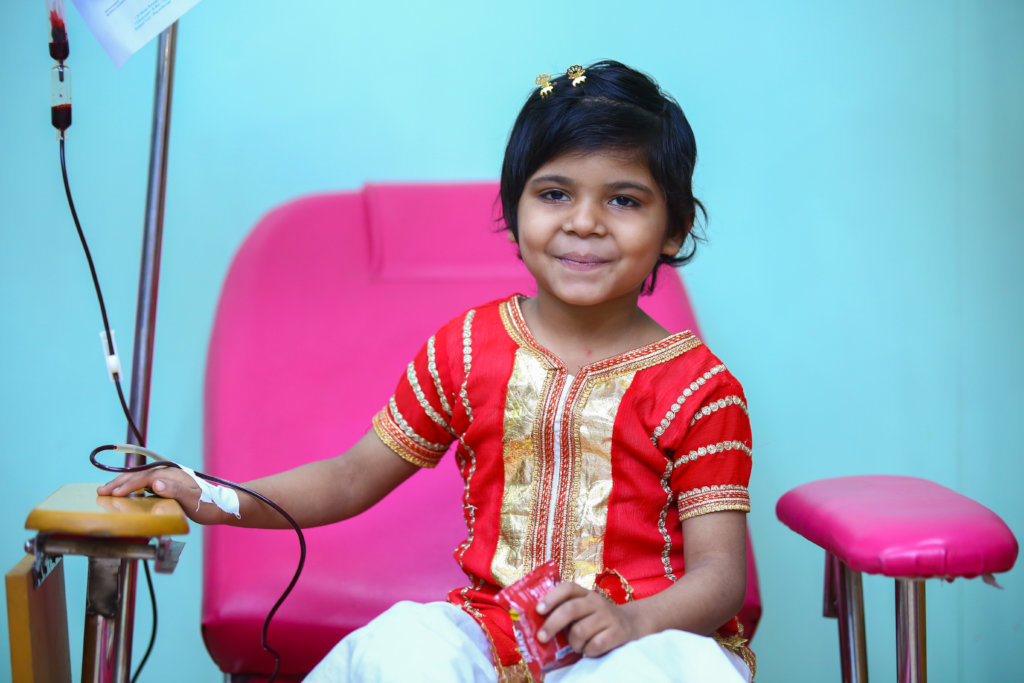What is Thalassemia?
Thalassemia is a genetic blood disorder that affects the production of hemoglobin. The Hemoglobin is a protein in red blood cells that carries oxygen throughout the body. It is a common genetic disorder worldwide, particularly in countries where consanguineous marriages are common. The condition can have a significant impact on the lives of children and their families, so it is important for parents to understand thalassemia causes, symptoms, diagnosis, treatment, prevention and management options.
Thalassemia causes and risk factors:
Thalassemia is caused by a genetic defect that affects the production of hemoglobin. The defect can be inherited from parents who are carriers of the gene. Parents who are carriers of thalassemia can have genetic counseling to understand the risks of passing the condition on to their children.
Thalassemia types:
There are two main types of thalassemia: alpha thalassemia and beta thalassemia. Alpha thalassemia affects the production of alpha globin, one of the two proteins that make up hemoglobin. Beta thalassemia, on the other hand, affects the production of beta globin. Depending on the severity of the genetic defect, thalassemia can range from a mild form, known as thalassemia minor, to a severe form, known as thalassemia major.
Thalassemia can be referred to by different names depending on the type of thalassemia. For example, some forms may be referred to as Constant Spring, Cooley’s Anemia, or Hemoglobin Bart Hydrops Fetalis. These alternate names are usually specific to certain forms of thalassemia, with Cooley’s Anemia referring to the severe form of beta thalassemia.
Thalassemia Symptoms:
Symptoms of thalassemia depend on thalassemia type. A child with a trait or minor form may not have symptoms or only mild ones. They may not need treatment. Someone with a thalassemia major form will need blood transfusion in the first year of life. Thalassemia symptoms in children can include pale skin, fatigue, weakness, poor appetite and enlarged spleen. In severe cases, children may also experience jaundice, bone pain, and delayed growth and development. It is important for parents to be aware of these symptoms and seek medical attention if they suspect their child may have thalassemia.
Thalassemia Diagnosis:
Thalassemia can be diagnosed through blood tests and genetic testing. A complete blood count (CBC) will show low levels of hemoglobin. HB electrophoresis test is also done on blood samples for thalassemia diagnosis. Genetic testing can confirm the diagnosis and determine the type and severity of thalassemia.
Thalassemia Treatment:
Treatment options for thalassemia in children include blood transfusions, iron chelation therapy, and bone marrow transplantation. Blood transfusions are used to replace the missing hemoglobin and can help alleviate symptoms such as anemia and weakness. The requirement of blood transfusion increases with the age of the child. However, repeated blood transfusions put the child at risk of iron overload. Therefore, iron chelation therapy is used to remove excess iron from the body. Doctor will check your child’s serum ferritin level and will advise iron chelation therapy according to his blood ferritin level and child symptoms.
With the passage of time, your child may suffer from enlarged spleen which further increases blood transfusion requirements. Therefore, your doctor may refer your child to a pediatric surgeon for removal of the spleen. It is pertinent to vaccinate your child against pneumococcal, meningococcal and H. Influenza before splenectomy.
While thalassemia is a lifelong condition, bone marrow transplantation is the only known cure for thalassemia major. However, this treatment is only available to a limited number of patients due to the high risk of complications.
Thalassemia home care:
It is important to give a healthy diet to your child with thalassemia to keep his bones strong. Thalassemia patients should stay away from sick people. They should wash their hands often. Proper vaccination against pneumonia, hepatitis and other routine immunizations are mandatory for thalassemia children. A Pediatrician may prescribe calcium and vitamin D supplements for your child. It is advised not to use iron supplements. It is also important to strictly comply with iron chelation to avoid iron overload.
What are Thalassemia complications:
Children with thalassemia mostly suffer from the following complications:
- Iron overload on liver, kidney and heart due to repeated blood transfusions
- Slower growth and delayed puberty.
- Bone changes due to poor nutrition. Bones become brittle and osteoporotic.
- Heart problem due to iron overload and may lead to heart failure.
- Enlarged spleen
Thalassemia Prevention:
For parents of children with thalassemia, it is important to work closely with their healthcare provider to manage the condition and ensure that their child receives the appropriate treatment. Genetic counseling can also be helpful for parents who are carriers of thalassemia to understand the risks of passing the condition on to their children.
Tests needed to diagnose thalassemia in Pregnancy:
If you are pregnant or trying to have a baby, you can have tests to learn if your baby will have thalassemia or not.
- Genetic testing can show if you or your partner carries any of the genes that cause thalassemia.
- Chorionic villus sampling tests a tiny piece of the placenta to see if a baby has the genes that cause thalassemia. Doctors usually do this test around the 11th week of pregnancy.
- Amniocentesis tests the fluid around an unborn baby. Doctors usually do this test around the 16th week of pregnancy.
Take Home Message:
In conclusion, Thalassemia is a genetic blood disorder that affects the production of hemoglobin in children, leading to anemia and other complications. Early diagnosis and treatment, including blood transfusions, iron chelation therapy, and bone marrow transplantation, can help improve the child’s quality of life. Parents of children with thalassemia should work closely with their healthcare provider to manage the condition and understand the risks of passing it on to their children through genetic counseling.
Sharing is caring! Don’t forget to share!

